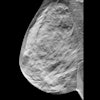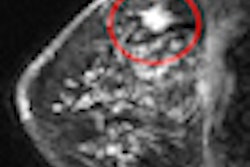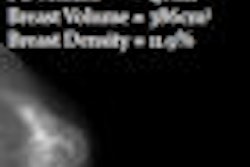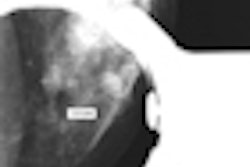Women who develop breast cancer before the age of 55 and who carry BRCA1 or BRCA2 genes are four times as likely to develop cancer in the other breast, according to a new study published online April 5 in the Journal of Clinical Oncology.
Study lead author Kathleen Malone, Ph.D., and colleagues from the Fred Hutchinson Cancer Research Center in Seattle found that compared to women who do not carry these genes, breast cancer patients with BRCA1 mutations had a 4.5-fold increased risk of developing contralateral breast cancer. Those with BRCA2 mutations had a 3.4-fold risk.
The study included data from 705 women with contralateral breast cancer and a comparison group of 1,398 women with unilateral breast cancer. All of the women were first diagnosed before age 55. Malone's team gathered participants from population-based cancer registries in western Washington, Los Angeles, San Diego, Iowa, and Denmark; all study participants were tested for the presence of BRCA1 or BRCA2 mutations, and none had evidence of cancer spread beyond the lymph nodes upon diagnosis.
Carriers of either mutation who were diagnosed with breast cancer before age 55 faced an 18% cumulative probability of developing cancer in the opposite breast within 10 years, compared to a 5% cumulative probability among women who are mutation-free, according to Malone and colleagues.
And the younger a woman who carries a BRCA1 mutation was at the time of her initial diagnosis of breast cancer, the higher her risk of cancer in the other breast. Women with the gene mutation diagnosed in their early- to mid-30s had a 31% cumulative probability of developing contralateral breast cancer within 10 years, compared to a 7% probability among women without the gene mutation.
Five percent of breast cancer patients across all age groups carry BRCA mutations, the study team wrote, but the younger a woman is when she's diagnosed with breast cancer for the first time, the more likely that she has a mutation. Of women diagnosed before age 35, 16% of those with one breast tumor and 54% of those with two breast cancers carried a mutation.
Women diagnosed with breast cancer at a young age need to be encouraged to consider genetic testing, according to the researchers.
"If [women] are found to carry a mutation in either of the BRCA genes, they should consider strategies for treatment, prevention, and heightened surveillance in relation to their increased risk of a subsequent breast cancer diagnosis," they wrote.
By Kate Madden Yee
AuntMinnie.com staff writer
April 6, 2010
Related Reading
Gene variants plus radiotherapy may up risk of contralateral breast cancer, March 23, 2010
Radiation exposure increases risk of breast cancer, March 4, 2010
Prophylactic mastectomy helpful in BRCA mutation carriers, March 3, 2010
Breast tumor characteristics predict likelihood of contralateral breast cancer, January 30, 2009
Family history boosts contralateral breast cancer risk after radiotherapy, November 4, 2008
Copyright © 2010 AuntMinnie.com




















